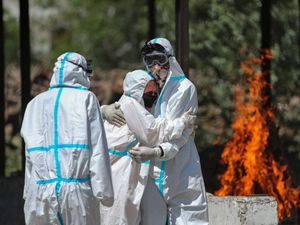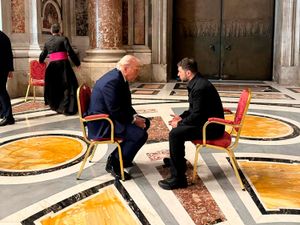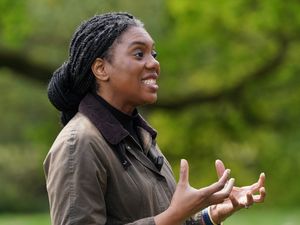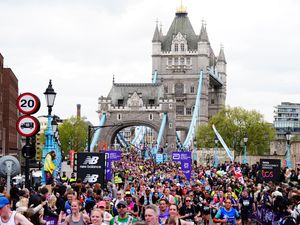India’s Covid crisis ‘beyond heartbreaking’, says World Health Organisation
Several countries, including the UK, have said they are sending help to the country.

The devastating surge in India’s Covid-19 cases which has overwhelmed the country’s health services is “beyond heartbreaking”, World Health Organisation (WHO) director-general Tedros Adhanom Ghebreyesus has said.
His comments at a press briefing in Geneva came as Dr Maria van Kerkhove, of the WHO Health Emergencies Programme, described coronavirus rates globally as being in a “fragile situation” as several nations, including the UK, said they were sending help to India.
She said: “This can happen in any country if we let our guard down. I am not saying that India has let its guard down but I am saying that we are in a fragile situation.

“Nine weeks of case incidence increasing and almost 5.7 million cases reported last week – that is almost certainly an underestimate of the true number of cases of infections that have occurred.
“The situation is fragile. The situation can grow if we allow it to and that is why it is important that every single person on the planet knows they have a role to play.
“We need governments to be able to support them in taking the actions that will inform them about what they need to do and keep them safe.”
Cases have now increased for the ninth consecutive week, and deaths have increased for the sixth week in a row which means there were almost as many cases globally last week as in the first five months of the pandemic, the WHO said.

The UK’s Foreign, Commonwealth and Development Office has said the first of nine plane-loads of life-saving kit – including ventilators and oxygen concentrators – would arrive in New Delhi early on Tuesday.
Further consignments were due to be dispatched later this week, while part of the shipment of emergency medical supplies comprised 100 non-invasive breathing aids from University College London which could help to prevent a significant proportion of people from needing mechanical ventilation.
Seth Berkley, chief executive of Gavi Vaccine Alliance, said that talks to secure dose-sharing of vaccines were in their “early days” but that France had said it would be releasing up to one million, New Zealand would be sharing 1.6 million and Spain had also said it would be involved.
He told the press conference: “It is an important priority, given that countries have purchased large portfolios of vaccines not knowing which would work and ultimately having more than they need for their populations.”
Covid-19 had also forced the suspension of 60 immunisation campaigns in 50 countries and had left about 228 million children vulnerable to deadly, vaccine-preventable diseases such as measles, yellow fever and polio, according to new WHO data.
Measles campaigns were the most affected, accounting for 23 of the postponed campaigns, and many of them had now been delayed for more than a year.
Targeted campaigns to prevent or respond to outbreaks along with routine childhood immunisation services had also been disrupted.
Serious measles outbreaks had occurred in several countries, including the Democratic Republic of the Congo, Pakistan and Yemen.
The WHO has launched Immunisation Agenda 2030, a global strategy to maximise the life-saving impact of vaccines, which is aimed at averting over 50 million deaths over the next decade.





